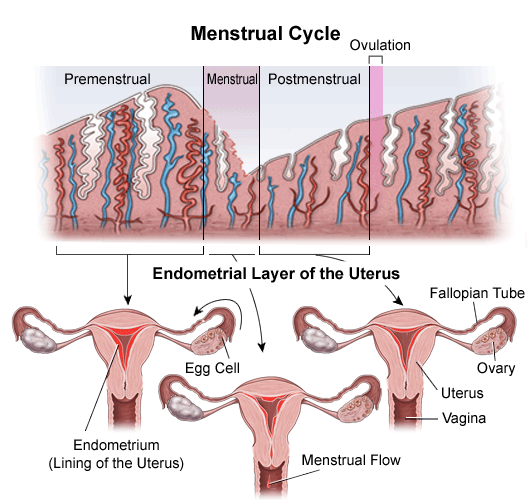Life Cycle Of Egg After Ovulation
Ovulation is a part of your menstrual cycle.
Life cycle of egg after ovulation. Occasionally more than 1 egg is released during ovulation. Ovulation is a part of the menstrual cycle when the ovary releases a ripe egg or ovum. It occurs at about day 14 of a 28 day menstrual cycle. It occurs when an egg is released from your ovary.
Pregnancy happens if a man s sperm meet and fertilise the egg. The follicle that released the egg becomes known as the corpus luteum after ovulation and begins to secrete the heat inducing hormone. It stays there for about 24 hours waiting for a single sperm to fertilize it. After ovulation once ovulated the egg is picked up by one of the fallopian tubes and begins to travel towards the uterus in the fallopian tube.
It lasts about 24 hours. Each follicle is a hollow ball of cells with an. Inside the ovary are hundreds of thousands of follicles. Conception is possible if sperm is already present in the fallopian tubes when the egg is released or if a woman has sex while the egg is alive causing sperm to swim up through the uterus and into the fallopian.
Ovulation can be affected by stress illness or disruption of normal. Some women may experience some light blood or spotting during ovulation. All this happens on average about 2 weeks before your. The egg has a short life after ovulation once the egg has matured and is released from the ovary during ovulation it goes into the fallopian tube where it lives for 12 to 24 hours.
Normally only one egg is released each time of ovulation. Ovulation happens at around day 14 if you have a 28 day cycle right in the middle of your menstrual cycle. An egg lives 12 24 hours after leaving the ovary. Once she starts her periods 1 egg develops and is released during each menstrual cycle.
After ovulation during the luteal phase the egg will be available to be fertilized by sperm in addition the uterine lining endometrium is thickened to be able to receive a fertilized egg if no conception occurs the uterine lining. Understanding how ovulation happens and when it takes place can help you achieve or prevent pregnancy. Implantation of a fertilized egg normally takes place 6 12 days after ovulation. Sperm can survive in the fallopian tubes for up to 7 days after sex.
This is where fertilization if it is to happen takes place. Specifically ovulation is the release of the egg ovum from a woman s ovary. After a day the egg will die or dissolve if it isn t. After ovulation the egg lives for 24 hours.
Ovulation is a phase in the menstrual cycle.
